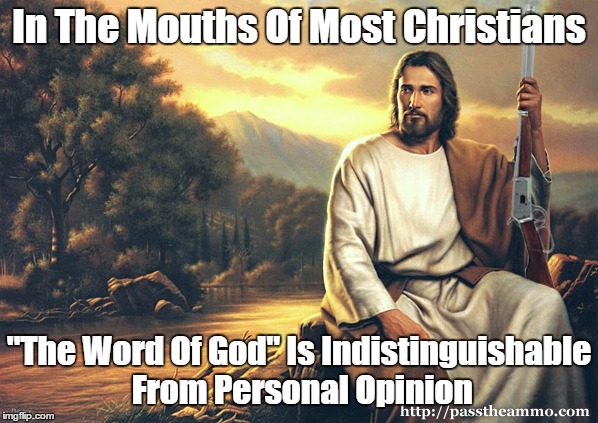
"I Grew Up In The Westboro Baptist Church. Here's Why I Left" And How All Of Us Can Open
https://paxonbothhouses.blogspot.com/2019/11/i-grew-up-in-westboro-baptist-church.html
Alan: In my work as a Spanish translator, I have grown keenly aware that "literal" translation is impossible.
Often, literal translation is misleading. For example, one "literal" translation of Paul's observation that "The spirit is willing but the flesh is weak" holds that "The ghost is eager but the meat is flabby."
Do you laugh?
Consider...
Not only is "literal" translation impossible with written texts, it is even "more" impossible when "translating" pre-verbal existential Reality into "the words" of any language.
20th century philosopher, Ludwig Wittgenstein, observed: "That which we say a thing is, it isn't."
An avocado, for example, is not a cluster of phonemes derived from the Aztec ahuacatl meaning "testicle."
Nor is avocado a series of symbols inked on paper or etched in stone.
It is the "thing itself" before Adam "named the beasts," prior to comment, before semantic overlay.
We would like it to stay still, to be what we say it is, to remain in its taxonomic envelope.
But no. It is all over the map.
Some hate its taste, its texture, its warts.
Others are thrilled by them all.
In the end, everything is up for grabs. Nothing settles before we hold it.
Nor was there any punctuation in the early Greek testamental texts.
Just one massive run-on sentence.
Notice what happens in "the conversion to cannibalism" when you drop the comma in the following sentence.
"Let's eat, Granny!"
"Let's eat Granny!"
Any pretense that we can understand words "literally" is demonstrably absurd - unless, of course, you happen to be a fundamentalist Christian minister -- like Fred Phelps -- whose Direct Line to God insures miracles.
Often, literal translation is misleading. For example, one "literal" translation of Paul's observation that "The spirit is willing but the flesh is weak" holds that "The ghost is eager but the meat is flabby."
Do you laugh?
Consider...
Not only is "literal" translation impossible with written texts, it is even "more" impossible when "translating" pre-verbal existential Reality into "the words" of any language.
20th century philosopher, Ludwig Wittgenstein, observed: "That which we say a thing is, it isn't."
An avocado, for example, is not a cluster of phonemes derived from the Aztec ahuacatl meaning "testicle."
Nor is avocado a series of symbols inked on paper or etched in stone.
It is the "thing itself" before Adam "named the beasts," prior to comment, before semantic overlay.
We would like it to stay still, to be what we say it is, to remain in its taxonomic envelope.
But no. It is all over the map.
Some hate its taste, its texture, its warts.
Others are thrilled by them all.
In the end, everything is up for grabs. Nothing settles before we hold it.
Behold the sentence, "I did not kill that man."
Is it possible for the meaning of a simple declaration to be any clearer?
Now, repeat the following sentences, emphasizing the underlined words:
1.) "I did not kill that man."
2.) "I did not kill that man."
3.) "I did not kill that man."
4.) "I did not kill that man."
5.) "I did not kill that man."
A simple six word sentence has at least five radically different meanings depending on intonation alone.
Nor was there any punctuation in the early Greek testamental texts.
Just one massive run-on sentence.
Notice what happens in "the conversion to cannibalism" when you drop the comma in the following sentence.
"Let's eat, Granny!"
"Let's eat Granny!"
Any pretense that we can understand words "literally" is demonstrably absurd - unless, of course, you happen to be a fundamentalist Christian minister -- like Fred Phelps -- whose Direct Line to God insures miracles.
Scriptural "literalism" is the simplest way to apotheosize oneself - using God as "a divine shield" for human egotism.

Fundamentalists will not be impressed: they consider such "arguments" to be "worldly wisdom" which their faith conveniently rejects.
But if such arguments are absurd, how do we account for the pacifism of the Amish?
How do we account for other Christians who applaud torture?
And what of those -- confounding Christianity and Nationalism -- who have "never seen a war they didn't like?"
I know biblical literalists who, because the Bible makes NO reference to abortion, believe that abortion is not sinful at all. In fact, under many circumstances, they see abortion as a virtue.
http://en.wikipedia.org/wiki/Hamartia
But if such arguments are absurd, how do we account for the pacifism of the Amish?
How do we account for other Christians who applaud torture?
Christianity's Bedrock Commitment To Torture: Remaking "The Faithful" In God's Image
"Good Romans" Considered Jesus' Torture Necessary For Imperial Safety
http://paxonbothhouses.
CIA Torture Report: Best Pax Posts
CIA Torture Report: Best Pax Posts
And what of those -- confounding Christianity and Nationalism -- who have "never seen a war they didn't like?"
I know biblical literalists who, because the Bible makes NO reference to abortion, believe that abortion is not sinful at all. In fact, under many circumstances, they see abortion as a virtue.
http://en.wikipedia.org/wiki/Hamartia
The lesson of "diverse belief" -- so stark as to be hidden in plain sight -- is that no one, and no group, has cornered the market on Truth and that humility (the specific antidote to the central sin of pride) would have us recognize that certain "spiritual methods" work best for "some" and that others work best for others.
I was walking across a bridge one day, and I saw a man standing on the edge, about to jump off. So I ran over and said "Stop! Don't do it!" "Why shouldn't I?" he said. "Well, there's so much to live for!" "Like what?" "Well... are you religious?" He said yes. I said, "Me too! Are you Christian or Buddhist?" "Christian." "Me too! Are you Catholic or Protestant ? "Protestant." "Me too! Are you Episcopalian or Baptist?" "Baptist" "Wow! Me too! Are you Baptist Church of God or Baptist Church of the Lord?" "Baptist Church of God!" "Me too! Are you original Baptist Church of God, or are you reformed Baptist Church of God?" "Reformed Baptist Church of God!" "Me too! Are you Reformed Baptist Church of God, reformation of 1879, or Reformed Baptist Church of God, reformation of 1915?" He said, "Reformed Baptist Church of God, reformation of 1915!" I said, "Die, heretic scum", and pushed him off.
Emo Philips
Yes, it is important that we not be so open-minded our brains fall out.
But is also true that self-certainty in service of sectarianism is the swiftest, straightest route to self-lobotization.
If you are a biblical literalist, remember... Fred Phelps is as certain as you are.
But is also true that self-certainty in service of sectarianism is the swiftest, straightest route to self-lobotization.
If you are a biblical literalist, remember... Fred Phelps is as certain as you are.
Every text without a context is a pretext.
And courage is the ability to live with ambiguity.
And then there is this entirely other level of biblical complexity.

And then there is this entirely other level of biblical complexity.
No comments:
Post a Comment